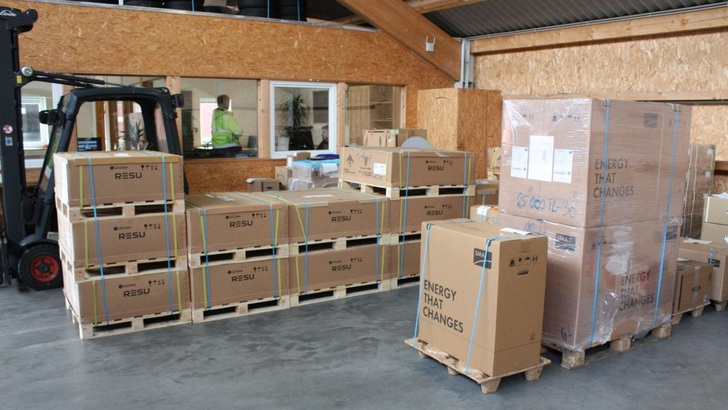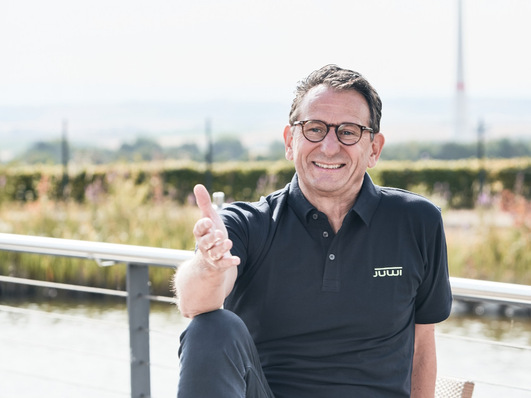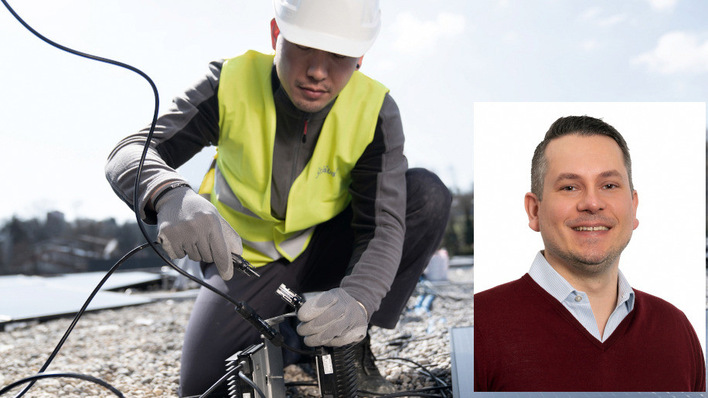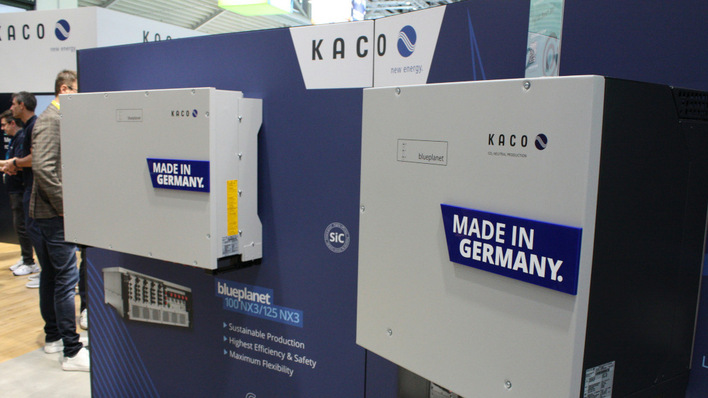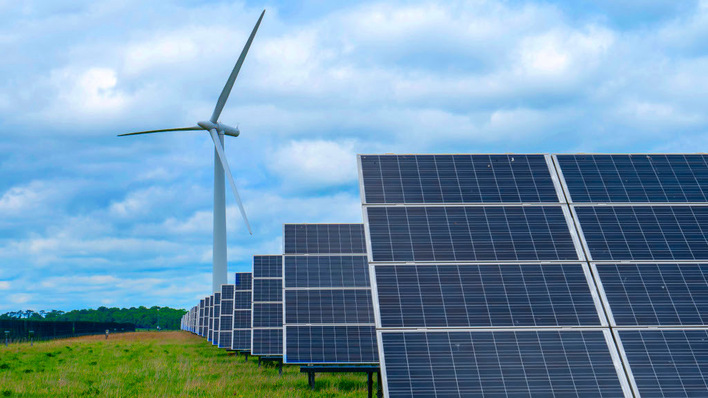In the previous two years the German storage market has developed well. The major wholesalers have used their time to expand their branding strategy onto this rather young market segment as well. “Demand has increased both in the domestic and the commercial sector – and it keeps on growing,” Kurt Krannich of Krannich Solar confirms. “The market moving. Technologies and requirements are evolving. In the private segment, there is a trend towards high-voltage systems, and our product range has a few innovative solutions here.” Low-voltage batteries are seeing rising charge and discharge capacities.
Bright prospects for Krannich
Krannich is active internationally. “On the one hand there are the classic storage markets of Germany and Austria,” Kurt Krannich judges. “On the other hand, we are seeing a rise in demand from Switzerland and Belgium as well as from African countries and Spain particularly for off-grid solutions. And even in markets with net metering, such as the Netherlands, we get more orders for storage systems.”
Krannich sees a clear trend for customers to ask for the largest possible PV array and for them to self-consume as much of their solar energy. “EVs are also playing an important role here, albeit sometime in the future,” he assesses. “That has also caused storage capacities to increase.”
Krannich generally does not expect bottlenecks. Retailers have learnt from the lessons past: “As a large distributor, reliability is very important for us. That is why we offer a wide range of manufacturers: To be able to offer an alternative.”
Storage sees most growth
Stefan Ebert is head of sales at EWS in Handewitt, near the Danish border. “Compared to all the other products, the turnover for storage units has seen the highest growth rates by percentage in 2017,” he states. “This trend continues unabated in 2018. Following the first two quarters of 2018, we expect a three-fold rise in demand for the storage systems in our product range compared to the same period of the previous year.”
So, the storage market is gathering momentum corresponding to that of the solar PV market about ten years ago. EWS sells 90 percent of their storage systems to German customers. “The Netherlands and Poland just are no markets for storage,” Ebert judges. “Because of sometimes high electricity tariffs and a mentality in favour of self-sufficiency, Scandinavia is showing first signs of a growing demand that makes us very optimistic going forward.”
EWS is also noticing that customers generally ask for larger storage capacities – an average of ten kilowatt hours in the domestic segment. “In 2016 and 2017, the average capacity was more on the order of six to seven kilowatt hours,” Stefan Ebert recalls. “Furthermore, we see more and more requests to expand existing storage systems.”
The trend was increasingly towards a greater degree of self-sufficiency, including for existing installations. “For small businesses, 40 kilowatt hours are now a common capacity range.”
EWS restocking their warehouses
With three decades as a specialist solar retailer under their belt, EWS has learnt to be cautious. Stefan Ebert assesses: “Since late last year a number of our partners in storage have been experiencing supply bottlenecks, which are resolving only quite slowly.”
And he does not see reasons to sound the all-clear, since the impact of a rise in demand for batteries form the automotive industry is beginning to have an effect. “This is the reason why BYD, for example, is massively expanding their production capacities,” he reports. “Nevertheless, we are expecting shortfalls for parts of our product range around the third quarter of 2018.”
In order to be able to meet short-notice demand, EWS warehouses several months’ worth of supplies from brands such as BYD, LG Electronics, LG Chem and Fronius.
BayWa expecting falling prices
BayWa r.e. is Germany’s largest specialist retailer for solar. As Alexander Schutt confirms, they are also seeing increasing demand for storage units. BayWa is seeing a rise in demand, particularly from the German market, but also from Italy, Switzerland and Austria.
Alexander Schutt also confirms: “Yes, it is clear that the average storage capacity has gone up slightly. Today a common domestic storage unit comes in at five to ten kilowatt hours.” He foresees that “with falling prices and an increasing trend towards integrated energy, storage capacities will continue to rise.”
BayWa is well-stocked and able to meet the demand. But Schutt cautions: “The soaring demand for battery cells from the automotive sector in particular could result in delayed deliveries or even bottlenecks in the next few years.”
Memodo: Order as soon as possible!
Memodo of Munich is also experiencing the rise in demand. “But currently, the very low prices for solar panels, a shortage of installing companies as well as the delivery bottlenecks for several battery manufacturers are having a damping effect on growth rates,” Daniel Schmitt, co-founder and CEO of Memodo, says. “Increasingly, more large-scale installations are built without storage.”
Memodo sells about 80 percent of their storage units in Germany. But Schmitt also sees an upsurge in overseas markets: “Drivers of growth continue to be smaller privately operated installations,” he analyses. “The low prices for solar panels and falling system costs for commercial storage are increasingly causing greater demand in this segment.”
Statistically, 7.8 kilowatt hours was the average storage capacity for Memodo in 2017. “For this year, we are seeing capacities more in the range of nine to ten kilowatt hours.”
Late last year, Memodo placed large orders with their suppliers. “Therefore, we are not expecting bottlenecks like the year before,” Daniel Schmitt remarks. “Nevertheless, installing companies should order as soon as possible, as deliveries of some high-demand storage units might be delayed slightly.” (HS)
What was new at the Intersolar and the EES Europe 2018 in Munich? Watch our expert’s movie clips here:
http://www.pveurope.eu/Videos/pv-Guided-Tours-videos-2018
Stay informed, get our newsletter twice a week.
Register here: http://www.pveurope.eu/Newsletter
Read more about solar modules.
Read more about solar mounting systems.
Read more about solar energy storage.


